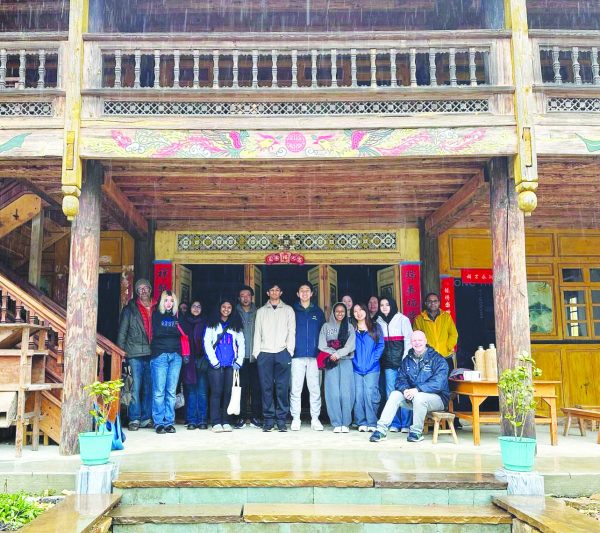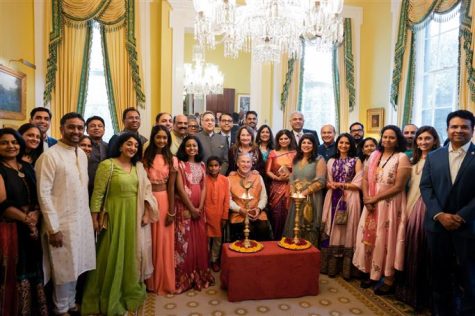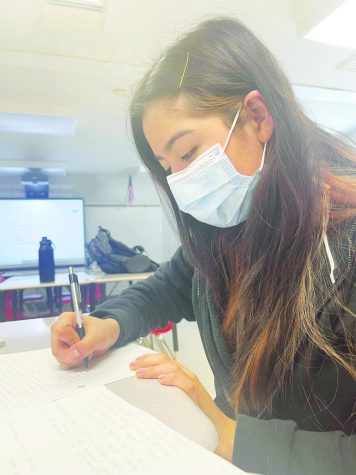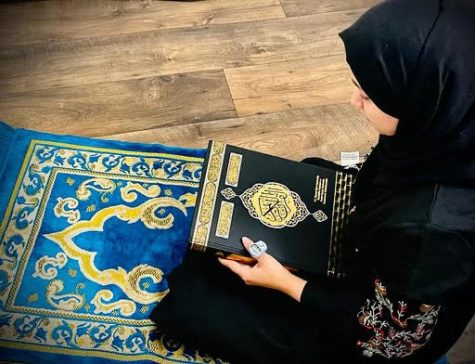Ew, You’re eating what?
With diversity comes differing cultures, faiths, and foods. AHS is known for being diverse within the school and the community, which opens people’s eyes to something new everyday.
Unfortunately, it is a common action among many to assume negatively of things that are different than what they are comfortable with, leading to them having a closed mind.
For example, when students bring different types of traditional foods for lunch.
Senior Ephrata Yohannes has been packing her own lunch since she first started attending middle school.
Her lunch typically consists of rice or pasta, but every once in a while, she would bring injera. This is the traditional food eaten in Ethiopia. It is eaten by hand, and is usually topped with another dish along with it.
To her, eating injera is nothing new, since she has been eating it all of her life. But one day, she brought injera for lunch, not really thinking much about the fact that this food was not commonly eaten by students in her school.
Once she opened her lunch, a number of students turned their way to see where that pungent smell was coming from.
Students turned their noses up to the scents of curry powder and foreign spices that flooded her lunch table.They were unaccepting of her new traditional dish.
“I felt like I was put in the spotlight and I didn’t really know what to do,” senior Ephrata Yohannes said.
Comments kept flooding in from friends, and some strangers, as they all gawked at the food she was eating.
“I only took two bites of my lunch before I felt like I had to throw it away,” Yohannes said.
Even then, the smell of her food consumed part of the cafeteria, and continued to linger on afterwards as well.
The appearance of her new and unaccepted food disturbed other students, and she finally realized that she could never bring injera for lunch again.
When people react negatively to the cultures of others and evaluate it in the standard of their own, this is known as ethnocentrism.
The differing backgrounds of students surprisingly does not find a way to ward off against this term, as students still make harsh judgements about other people’s foods and cultures.
“Whenever people find out that I’m Somalian, they make so many jokes about how we eat everything with bananas,” senior Amal Hashi said.
Anthropology teacher Holly Miller tries her best in the classroom to combat against ethnocentrism by exposing her students to different types of foods and cultures.
“I like to bring in music from different countries, show pictures, and food too, to provide a variety of ways to try and break down judgments,” Miller said.
Although keeping an open mind may be hard for some people, her students try their best to avoid judging automatically.
“I try not to react with judgment, but often times the things she shows us come as a shock to me, and usually makes laugh at first,” senior Jonathan Assefa said.
It is through small attempts like these, that can lead to an impactful change in classrooms.

Senior Yabi Bereket has been on the A-blast for four years. This year, she is the International Editor and has previously been editor for the Lifestyles...










